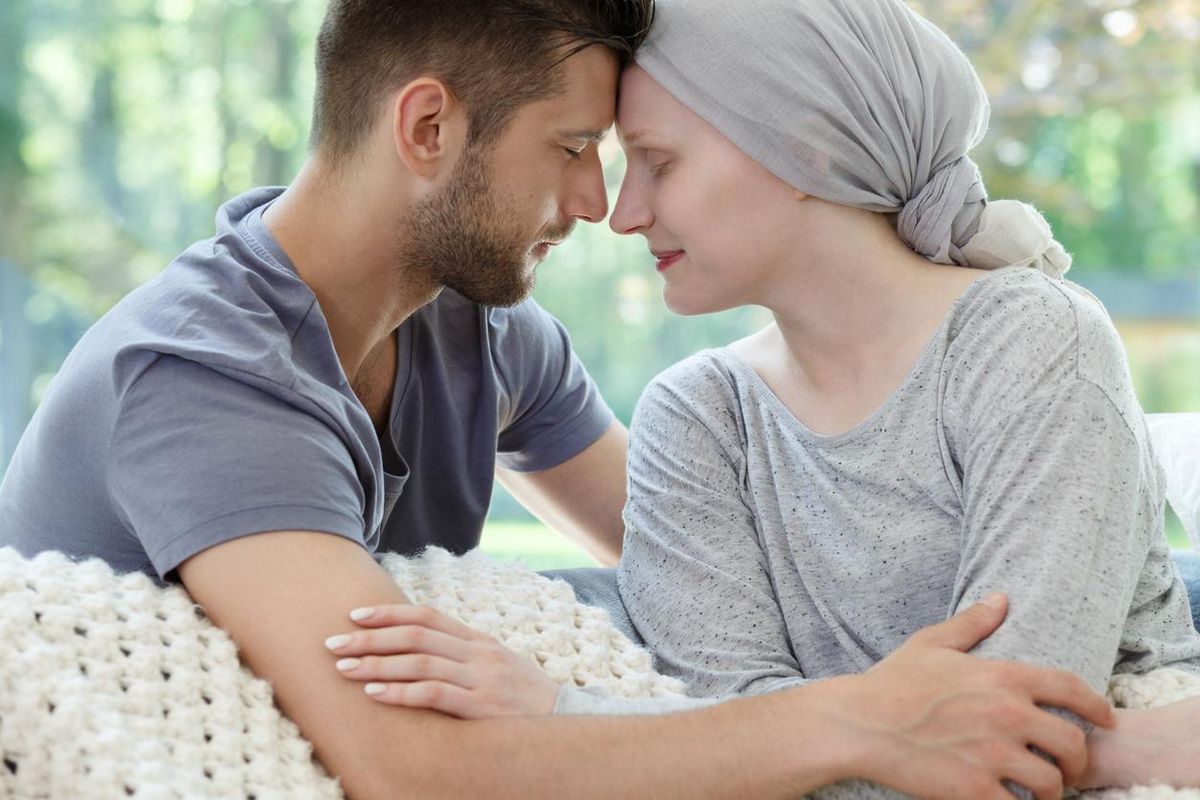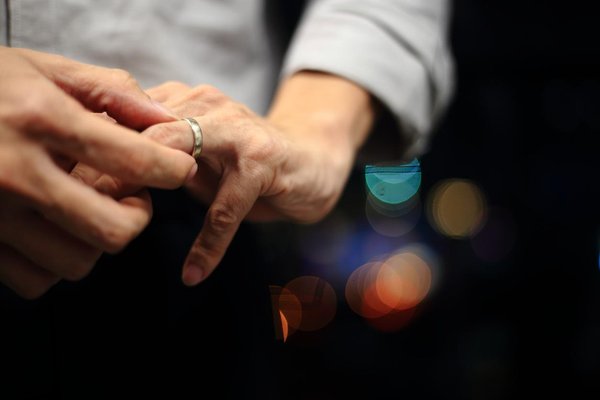Emily Jamea, Ph.D., is a sex therapist, USA Today Best-Selling author and podcast host. You can find her here each month to share her latest thoughts about sex.
If you’re reading this, chances are that you or someone you know has been affected by cancer. You may be familiar with cancer screenings, types of cancers and various treatment options, but how familiar are you with the effect that cancer can have on sexuality and intimacy?
Unfortunately, there is a massive lack of awareness about the way that cancer can affect your sex life. The average cancer patient typically doesn’t know what kinds of questions to ask about sex after cancer, and even if they did, they’d be lucky to find a physician equipped to answer them. Assuming they were fortunate enough to be paired with an informed doctor, most oncologists report that they don’t have time to answer questions about sexual health. This is a major problem because sexual health and well-being is important. Studies demonstrate a link between sexual satisfaction and happiness, relationship satisfaction, feeling one’s life is meaningful and overall physical health.
What exactly are the effects of cancer on sexuality?
Research suggests that more than two out of every three women who have gone through cancer experience sexual dysfunction. Sexual dysfunction includes decreased desire, difficulty with arousal and orgasm and sexual pain. Cancer survivors experience sexual issues both as a direct and indirect effect of their cancer and treatment. Women who experience pelvic cancers (think uterine, ovarian, vulva) may have damage to these and surrounding body parts, leaving them with early onset menopause, vaginal dryness and pain, which can make sex uncomfortable.
Then there is the long list of indirect effects. In short, our sexuality and our individuality are linked. You cannot separate them. Anything that changes the way you feel about yourself (for example, feeling less feminine because of hair loss or no longer having breasts after a mastectomy, weight gain, changes in body image) is most likely going to affect your desire for sex. Add to that the effect on self-esteem. Many women feel guilty about no longer being able to fulfill their usual roles and responsibilities at home or at work. Then there is the mental health component. Most women going through cancer experience some degree of anxiety or depression, which are known to put a damper on libido. Furthermore, the medications used to treat mental health issues often come with sexual side effects.
Why is it that the effect cancer has on sex is so profoundly neglected?
First, there is the obvious reason: most healthcare providers (HCPs) are concerned with keeping patients alive. If they’ve done that, they consider it a successful day. Second, many HCPs, even gynecological oncologists who treat the most severely affected group, don’t know how important sexual well-being is to overall well-being. They may not have read the research. And finally, research and treatment of women’s sexual health has historically taken a major back seat to men’s sexual health. It’s simply not a major focus in medicine.
So what can a woman whose had cancer do to reclaim her sex life?
1. First and foremost, seek support from your partner. This can be challenging if you’ve never had an open dialogue about sex, but it is so, so important. The ability to adapt to ever changing circumstances, whether it’s adding lube, finding more comfortable sex positions, or focusing on outercourse for a while, can make all the difference in your sexual self-esteem and satisfaction.
2. Give your healthcare provider a nudge. Express that your sexuality is important to you. Make it clear that you want to know what effect your cancer and/or its treatment might have on your sex life or that you want to know how long after chemotherapy or cancer can you have sex. If they can’t give you answers, demand a referral to someone who can. Knowledge is power.
3. Give yourself permission to feel all the feelings. It’s okay to grieve and to feel angry and sad. Denying yourself these emotions does more harm than good. It’s not usually until these emotions are expressed that there is space for a new plan and hope.
4. Maintain an open mind. The more you see this as an opportunity to learn something new about yourself, the better off you are. Maybe you had a mastectomy and you no longer have your breasts available as an erogenous zone. Spend time exploring your body both alone and with your partner, and see what new pleasure pathways might awaken.
5. Mindfulness techniques have been shown to enliven desire and arousal among female cancer survivors. It’s easy to get stuck in negative thoughts about your body image or feel distracted by pain, but studies show that mindfulness is one of the best ways to reconnect to your sexual self.
6. Focus on your body’s strengths. It’s easy to feel like your body is weak, but if you’ve survived cancer, you have more strength than you realize. Get active as much as you can. Invest in lingerie that makes you feel good about yourself.
7. Get your brain in gear. While your body may look or feel different, chances are your brain is still in good shape. This is good news because your brain is your most important sex organ. Find ways to get sex on the brain and see what effect that has on your desire and arousal. Read or watch erotica or download a sex app that you can share with your partner.
8. Practice on your own. You might be nervous to jump back in bed with your partner, and that’s okay. Solo play is one of the best ways to rediscover your body after going through something like cancer. Talk to your HCP about pelvic floor rehab with a physical therapist or see if vaginal dilators might help you move past any vaginal or pelvic pain you might still be experiencing.
9. Check your meds. Talk to your HCP to see if any of the medications you’re taking might cause sexual side effects and discuss options. While some HCPs remain apprehensive about any estrogen at all, others find that the benefit of a low-dose local estrogen cream, which is unlikely to be absorbed systemically, outweigh the risks.
10. Find good resources.Anne Katz, Ph.D., R.N., has written numerous books on cancer and sexuality. If you’re struggling to get information from your medical provider, seek treatment from a certified sex therapist who might be able to guide you back in the right direction.
Cancer makes us face death. But remember that sex, no matter how you have it, is one of the most life-affirming things you can do.
- Sexual Dysfunction ›
- Sex, Fertility and Breast Cancer ›
- Sex after Breast Surgery ›
- How I Got My Sexual Groove Back After Surviving Breast Cancer ›
- Breast Cancer and Sexuality ›







